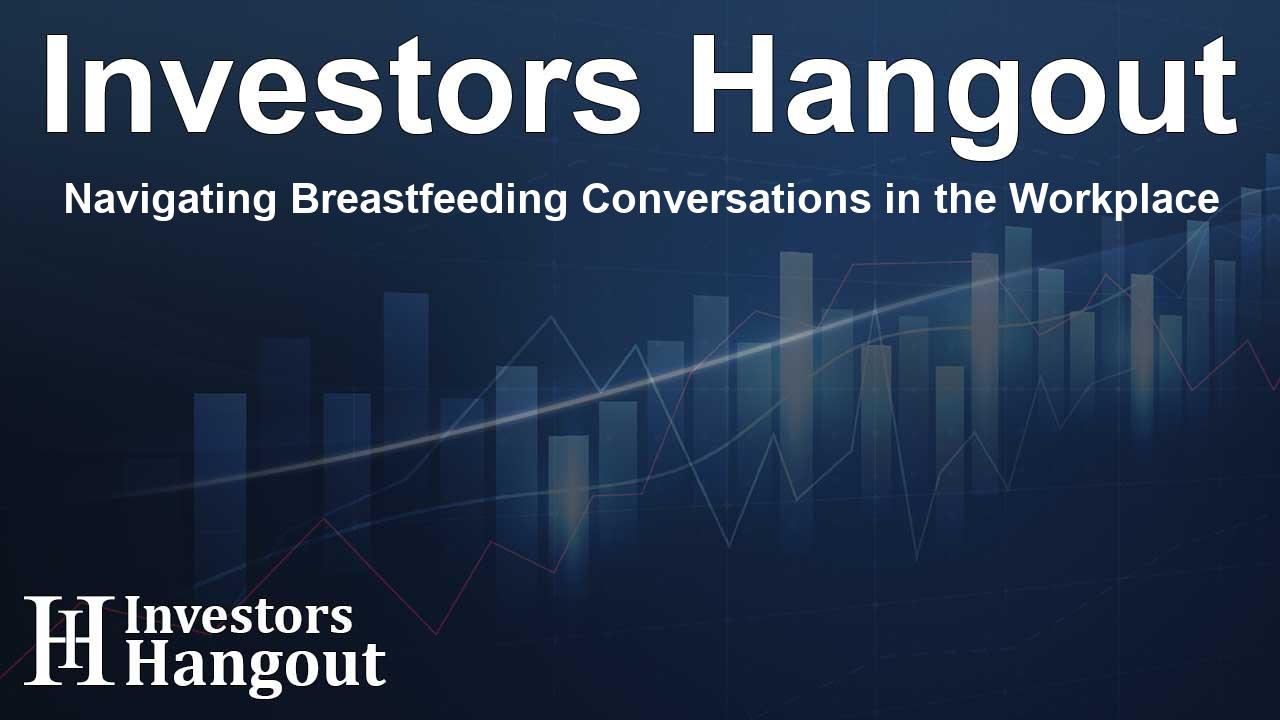Navigating Breastfeeding Conversations in the Workplace

Understanding the Challenges of Working Moms
As the back-to-school season approaches, many new mothers face a significant challenge when returning to work: the need for a suitable space to pump breast milk. This vital question creates a point of concern for working moms everywhere, as they seek solutions to balance their career with breastfeeding commitments.
Empowering Working Moms Campaign
In 2025, moms across the nation are continuously maneuvering through obstacles such as inadequate paid leave, insufficient lactation support, and a lack of mental health resources. Recognizing these hurdles, a national initiative called Empowering Working Moms was launched to amplify the voices of mothers, employers, and advocates who strive for more supportive workplace environments. This campaign seeks to bring about tangible change.
Collaboration with Nessel
A key player in this movement is Nessel, an innovative company led by women that focuses on providing effective workplace lactation solutions. Their mission is to ease compliance hassles for businesses while fostering a culture of care and respect for breastfeeding parents. Nessel achieves this through thoughtfully designed products, such as lactation pods and stations, which create welcoming spaces for nursing mothers in the workplace.
Initiating the Conversation About Breastfeeding
Although the PUMP Act allows employees access to a private space for pumping, approaching the subject with an employer can be daunting. Nessel advocates for open communication to ensure every parent feels acknowledged and supported.
Key Tips for Discussing Pumping Needs
Here are a few practical strategies to help you start a conversation with your employer about breastfeeding at work:
- Know Your Rights: Understand your legal rights under the PUMP Act, which mandates that employers with 50 or more employees offer a private area for lactation and reasonable breaks for pumping.
- Be Clear and Confident: Clearly communicate your pumping schedule, the duration you need, and the specific requirements for the space and equipment.
- Show Your Commitment: Convey that your intention is not to shirk responsibilities but to incorporate your needs effectively into your routine.
- Propose Solutions: If a lactation space is absent, suggest potential solutions, such as Nessel's advanced lactation pods as viable options.
- Encourage Ongoing Dialogue: Recognize that your requirements may evolve and continue to have discussions as necessary to adapt to changing circumstances.
Benefits of Thoughtful Lactation Spaces
Nessel's design focus incorporates features like built-in sinks, refrigeration, soundproofing, and ergonomic seating to ensure nursing parents can pump in comfort without interrupting their workflow. Such amenities not only promote retention of employees but also minimize absenteeism while cultivating a supportive work culture.
Discovering Lactation Solutions
For further insights into creating effective workplace lactation solutions, you can explore Nessel's resources. Their website outlines a comprehensive range of options designed to meet the needs of breastfeeding employees, reinforcing the importance of comfort and dignity in these crucial moments.
About Nessel
Nessel is dedicated to designing and implementing lactation spaces that empower employers and support breastfeeding parents in the workplace. Their strategic solutions help organizations comply with the PUMP Act while ensuring a dignified and supportive environment for nursing mothers. Nessel offers an array of enclosed lactation pods as well as lactation stations and ergonomic pumping chairs to enhance existing spaces. By partnering with leading companies, Nessel transforms legal obligations into meaningful commitments that elevate workplace culture and employee satisfaction.
Frequently Asked Questions
1. What is the PUMP Act?
The PUMP Act is legislation that ensures employees have the right to a private space for expressing breast milk and provides reasonable break time for doing so.
2. How can I approach my employer about breastfeeding at work?
Start by being informed about your rights, clearly express your needs, and propose potential solutions while maintaining open communication.
3. What resources does Nessel provide for breastfeeding mothers?
Nessel offers innovative lactation pods and stations designed to create comfortable and compliant environments for nursing mothers in the workplace.
4. Why is breastfeeding support important in the workplace?
Supporting breastfeeding employees promotes well-being, reduces absenteeism, and fosters a caring company culture that values family obligations.
5. How can I maintain an ongoing conversation about my pumping needs?
Regular communication with your employer about your evolving needs ensures that appropriate accommodations are made and can help adapt as necessary throughout your parenting journey.
About The Author
Contact Dominic Sanders privately here. Or send an email with ATTN: Dominic Sanders as the subject to contact@investorshangout.com.
About Investors Hangout
Investors Hangout is a leading online stock forum for financial discussion and learning, offering a wide range of free tools and resources. It draws in traders of all levels, who exchange market knowledge, investigate trading tactics, and keep an eye on industry developments in real time. Featuring financial articles, stock message boards, quotes, charts, company profiles, and live news updates. Through cooperative learning and a wealth of informational resources, it helps users from novices creating their first portfolios to experts honing their techniques. Join Investors Hangout today: https://investorshangout.com/
The content of this article is based on factual, publicly available information and does not represent legal, financial, or investment advice. Investors Hangout does not offer financial advice, and the author is not a licensed financial advisor. Consult a qualified advisor before making any financial or investment decisions based on this article. This article should not be considered advice to purchase, sell, or hold any securities or other investments. If any of the material provided here is inaccurate, please contact us for corrections.
